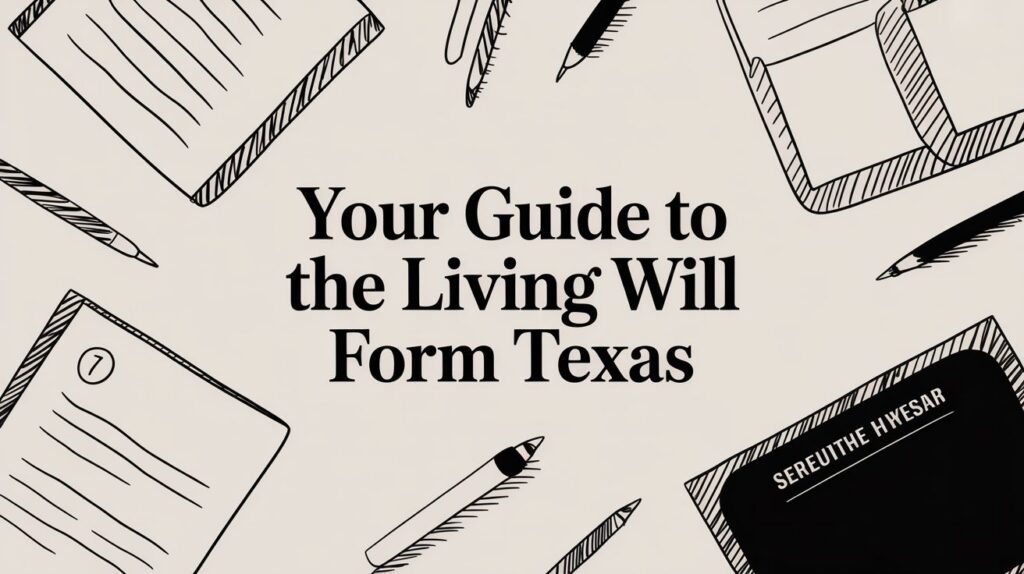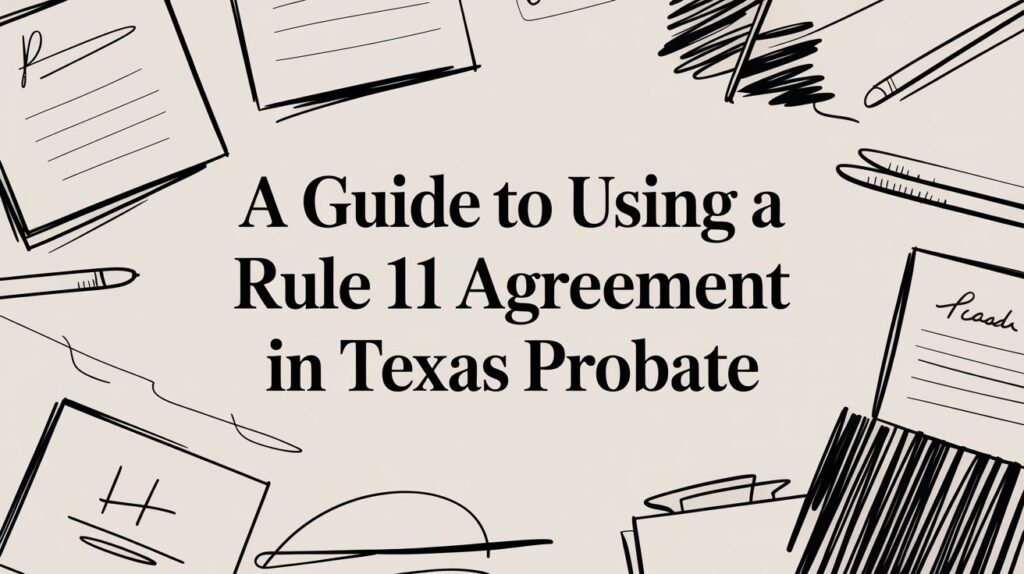When someone in Texas dies and their will is read aloud, few revelations cause more shock or tension. This can happen upon learning that a surviving spouse has been left out entirely. Whether driven by estrangement, second marriages, long-held resentment, or personal beliefs, the decision to disinherit a spouse often triggers more questions than answers. Can someone cut their husband or wife out of a will in Texas? And if so, what happens next—legally, financially, and emotionally?
The short answer is that while Texas law allows considerable freedom in how people distribute their estates, it does not allow a spouse to be excluded without legal consequences. The long answer is more nuanced. It requires a deeper examination of how Texas law treats spouses, the protections built into the system, and how disputes over such wills are resolved when families collide in probate court.
The Community Property Framework in Texas

Texas is one of a handful of community property states in the U.S., which significantly affects how assets are divided. Under this system, most property acquired during the marriage is presumed to be jointly owned by both spouses. This includes income, real estate, investments, retirement accounts, and debts—unless proven otherwise.
Separate property, on the other hand, includes anything acquired before the marriage, or through inheritance or gifts during the marriage. What matters is that it was kept separate and not commingled with marital assets.
This distinction matters because no matter what a will says, a person can only control what they own. If the deceased only owned half of the marital assets (which is typically the case), then they can only give away their half. The surviving spouse automatically retains their portion of the community estate.
So, if a will attempts to give away 100% of everything—without accounting for what belongs to the surviving spouse—the court will not uphold that portion. In this sense, Texas law prevents a spouse from being truly disinherited when it comes to community property.
Can You Be Disinherited From Separate Property?
The situation changes when the deceased spouse owned significant separate property. In this case, the deceased can generally leave their separate assets to anyone they wish, even to the exclusion of their spouse.
Texas law does not automatically grant surviving spouses the right to inherit a portion of their deceased partner’s separate property if there is a valid will stating otherwise. That means someone could, in theory, leave their house, inheritance, savings, or heirlooms to a child, sibling, friend, or even a charity. In essence, they can cut their spouse out entirely.
But that’s not the end of the story. While the law allows this level of testamentary freedom, it also gives surviving spouses certain legal tools to fight back or assert their financial rights.
Homestead Rights and Temporary Residence Protection

Even when a spouse is disinherited from the will, Texas law provides important safeguards, especially regarding the marital home. The surviving spouse cannot be forcibly removed from their primary residence, even if the will leaves it to someone else.
This protection is known as a homestead right. It allows the surviving spouse to continue living in the home for life or until they voluntarily vacate it. The law does not give them ownership if the property was the deceased’s separate asset and left to someone else. However, it does prevent the heir from evicting the surviving spouse.
In addition, the surviving spouse may be entitled to a probate allowance, called the “probate homestead” or a “temporary support allowance.” These protections ensure that the disinherited spouse is not rendered suddenly homeless or destitute while the estate is being settled.
These are not automatic property transfers, but they are strong legal shields. Anyone inheriting a home in which the surviving spouse resides will likely have to wait a very long time—or negotiate—before asserting full control.
The Right to Elect Against the Will: Does Texas Allow It?
In many states, surviving spouses can choose to “elect against the will.” This means they reject what the will says and instead claim a legally defined share of the estate. However, Texas does not offer this elective share right in the same way.
Texas courts assume that the surviving spouse already owns half the community property. If the will tries to dispose of more than the deceased’s half, the surviving spouse can challenge it. But they do not have the right to claim a fixed portion of the separate property simply because they were married.
This limitation leaves some surviving spouses vulnerable, particularly in second marriages where the deceased had children from a previous relationship and wanted to pass their assets directly to them. In such cases, the surviving spouse may need to explore other legal remedies.
Contesting the Will in Court
If a spouse has been completely excluded from a will and believes it was done unfairly, fraudulently, or under undue influence, they have the right to contest the will in probate court. This is often a difficult process, emotionally and legally, but it can result in the will being thrown out partially or entirely.
Grounds for challenging a will in Texas include:

- Lack of testamentary capacity
- Undue influence or coercion
- Fraud or forgery
- Improper execution (e.g., not witnessed properly)
- Existence of a newer will
If the challenge succeeds, the court may set aside the will and apply intestate succession laws instead. Under these laws, the surviving spouse would receive a defined portion of the estate, depending on whether the deceased had children and whether the assets were separate or community property.
However, courts do not overturn wills lightly. The person contesting the will must provide strong, credible evidence to back their claim.
The Role of Prenuptial and Postnuptial Agreements
Some spouses are disinherited through mutual agreement, usually through prenuptial or postnuptial contracts. These legal documents can waive a surviving spouse’s right to community property, homestead rights, or inheritance—if done voluntarily and with full disclosure.
Texas courts generally enforce such agreements, but only if they were executed properly. That means both parties had adequate legal representation, understood what they were signing, and did so without pressure.
If a spouse signed a marital agreement that waived rights to certain property, it can seriously limit their ability to challenge the will later. But if the agreement was unfair, one-sided, or signed under questionable circumstances, the court might invalidate it.
Surviving spouses who discover they’ve been disinherited should review any marital agreements carefully, preferably with an attorney experienced in probate or family law.
Children and Stepchildren Complicate the Picture
Disinheriting a spouse often creates ripple effects within the family, especially when there are children from previous relationships. In blended families, tensions can run high if the will favors biological children over the surviving spouse, or if the spouse disinherits stepchildren they helped raise.
Texas law does not automatically provide for stepchildren. If they are not legally adopted, they have no inheritance rights unless named in the will. In contrast, biological and adopted children do have statutory inheritance rights under intestacy laws.
That said, if the deceased left behind children and disinherited the spouse, the surviving partner may conflict with adult children over everything from real estate to heirlooms. Probate courts can become battlegrounds when grief, legacy, and legality collide.
What Happens to Shared Debts and Liabilities?
While a spouse can sometimes be disinherited from an estate, they are rarely disinherited from shared financial responsibilities. Under Texas law, both spouses remain jointly liable for debts incurred during the marriage, regardless of how assets are divided.
If the estate is heavily indebted, the surviving spouse could be responsible for remaining balances, especially if the debt is tied to community property. Mortgages, credit cards, business obligations, and medical bills don’t disappear simply because one partner passed away.
This financial exposure often catches people off guard. A spouse might receive little or nothing from the estate but still bear the burden of repayment.
Final Thoughts: Love, Law, and Legacy
Disinheriting a spouse is legally possible in Texas, but rarely simple. The law draws a hard line between separate and community property and places limits on how much control someone can exert from beyond the grave. Surviving spouses who are left out of a will may still have strong legal rights to property, residence, and support. But asserting those rights often requires legal strategy, emotional strength, and a willingness to navigate probate litigation.
If you’re a surviving spouse who has been unexpectedly cut out of a will, don’t assume all is lost. And if you’re drafting a will and considering excluding your spouse, understand the legal implications and prepare for potential fallout. Inheritance isn’t just about money. It’s about dignity, fairness, and the relationships that outlive us. In Texas, those relationships still carry legal weight—even when they’re strained or complicated.








